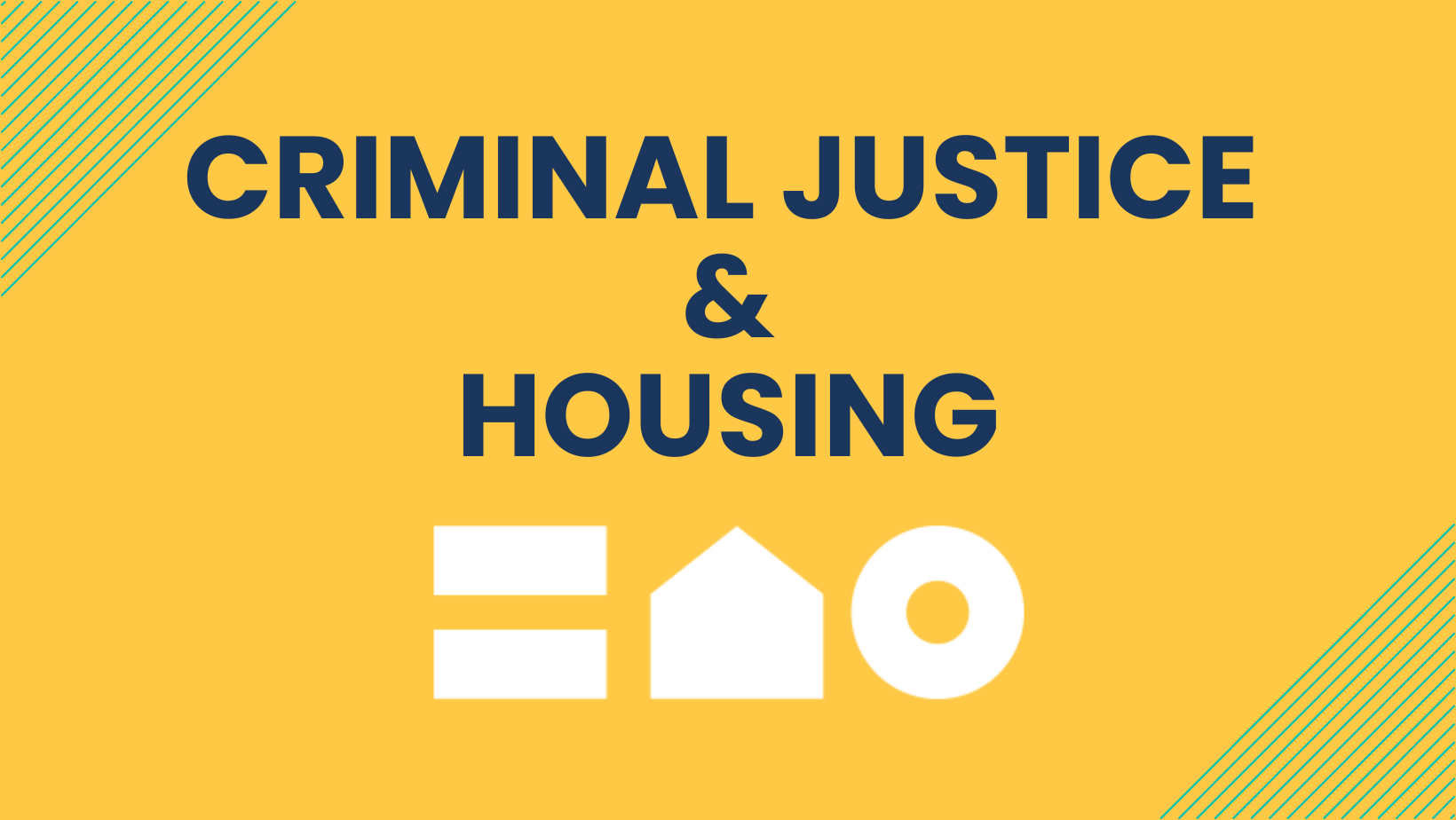Did you know that nearly 1 in 3 people in the United States has some form of criminal record?
Unfortunately, having a criminal record can limit an individual’s access to education, jobs, and housing which can complicate the re-entry process and even lead to re-arrest. In fact, one of the biggest determining factors for successful reentry is whether an individual can find safe, secure, and affordable housing. Unfortunately, for anyone with a criminal record, finding housing is easier said than done – the National Inventory of Collateral Consequences of Conviction found that there are more than 1,300 barriers to housing at various levels of government related to criminal records. This combined with the national housing crisis and widespread shortage of affordable and available housing options has increased the challenge for formerly incarcerated folks. They are ten times more likely to face homelessness than those without a criminal record.
In Connecticut, it is illegal for housing providers to have a blanket ban on renting to individuals with criminal records, but this type of housing discrimination can be hard to identify. To be covered under the Fair Housing act, three things need to be true and present:
- The person must be covered as a member of one or more protected classes.
- The property must be covered.
- The behavior must be covered.
There are two different theories for proving discrimination:
- Differential treatment – treating people differently because of their membership in a protected class.
Examples of criminal record practices that result in differential treatment:
A housing provider rejects a Latino applicant based on his criminal record but rents to a white applicant with a similar record.
A housing provider has a policy of not renting to people with certain convictions but makes exceptions for white applicants and not applicants of color.
A housing provider told a Black applicant that a criminal record would disqualify them from renting an apartment but did not similarly discourage a white applicant with a comparable criminal record.
- Disparate impact – a neutral rule that has a disparate impact or discriminatory effect (greater negative effect) on members of a protected class.
Because of racial disparities in the criminal justice system linked to discriminatory policies. blanket “no arrests” or “no convictions” policies may the Fair Housing Act because of its discriminatory effect on people of color. Even a narrower prohibition that excludes any person with only certain types of convictions may still violate the Fair Housing Act. Housing providers should do an individualized assessment of mitigating factors and delay consideration of criminal history until financial and other qualifications for the prospective tenant have been verified. The (HUD) says that a housing provider must prove that its criminal records policy is necessary to serve a “substantial, legitimate, nondiscriminatory interest.” Thus, the housing provider must show that their policy distinguishes between criminal conduct that has a demonstrable risk to safety and/or property and criminal conduct that does not. Housing providers must consider three factors when evaluating a prospective tenant’s criminal conviction:
- When was the offense?
- How old was the prospective tenant at the time of the offense?
- How much time has passed since the offense occurred?
- What is the nature and severity of the offense?
- Was the offense violent or non-violent?
- Was the conviction related to drugs?
- Note that an arrest alone should never disqualify someone from housing and the Fair Housing Act does not protect a person who has been convicted of manufacturing or distributing drugs (42 U.S.C. § 3607(b)(4).
- What has happened since the offense occurred? Consider the following:
- Criminal history since conviction.
- References from previous housing providers, case worker, parole officer.
- Success on parole, in transitional housing program, community, etc.
- Rental history before or after incarceration.
Tips for Tenants with a Criminal Background Applying for Housing
Because people with a criminal record are at an increased risk for housing discrimination it is important that they are prepared for the rental application process. Below are some tips that may help.
- Consider running a criminal background check yourself.
- Don’t disclose your criminal record during the initial phone call.
- If a criminal background check is part of the application process, consider disclosing the criminal record prior to the criminal background check.
- Do explain any mitigating factors regarding the offense.
- Consider providing information about prospective support systems, including transitional or supportive housing programs.
- Provide letters of recommendation or phone numbers for references.
- If the conviction was related to behavior associated with a disability, for example, a past untreated substance abuse disorder, consider making a reasonable accommodation request that the housing provider overlook it.
Unfortunately, even with knowledge about how a criminal record can impact housing opportunities, tenants with a criminal record may have their application rejected. Below are some tips that may help if this happens.
- Respond in writing and explain mitigating factors.
- Provide information about prospective support systems, including transitional or supportive housing programs.
- Provide letters of recommendation or phone numbers for references
- Request a hearing or secondary level of review, if available.
- Contact an attorney.
To learn more about housing discrimination and how the Center is working to ensure that all people have equal access to housing opportunities in Connecticut, free from discrimination visit www.ctfairhousing.org.


